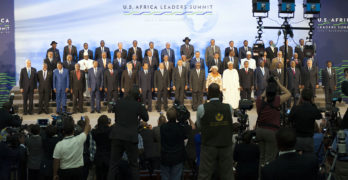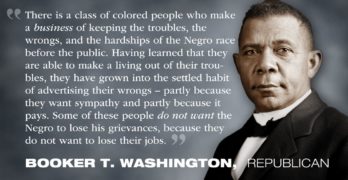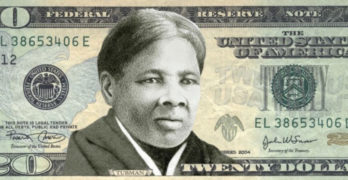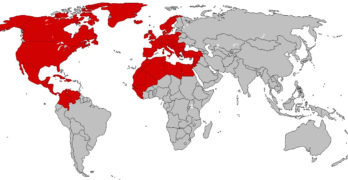 For over a century experts in persuasion have understood that it is the manipulation of emotion that influences an election. However, with computers, algorithms, social media, and the internet, the ability to analyze and influence emotions has exploded.
For over a century experts in persuasion have understood that it is the manipulation of emotion that influences an election. However, with computers, algorithms, social media, and the internet, the ability to analyze and influence emotions has exploded.
The vast majority of the American people, media, and politicians in the 2016 Presidential Elections are living in a past tense reality based on a faulty perception of politics and the nation.
The 2016 American Presidential race is a “Pokémon Go” election that is taking place in “augmented reality” where “social bots” motivate people to vote for one candidate or another by manipulating their moods via social media.
Pokémon Go is an augmented reality game where a person follows virtual characters or objects that appear on their smart phones through real world environments.
In the first two trading days after the game was released on the market the stock of Nintendo, the games manufacturer, rose $7.5 billion.
The latest psychological research tells us that voters make choices based on emotions rather than logic and facts. In other words, voters are not making up their minds because of political debates they are watching on the cable news networks where statistics and other hard facts are being discussed.
Across all educational levels people are voting on the basis of emotion.
For over a century experts in persuasion have understood that it is the manipulation of emotion that influences an election.
However, with computers, algorithms, social media, and the internet, the ability to analyze and influence emotions has exploded.
For example, the latest data suggests that the manipulation of emotions can also affect voter turnout.
If tech companies like Google, Apple, Twitter, or Instagram manipulate emotions to increase positive feelings among people who are Democrats or Republicans, that can produce greater enthusiasm about the election.
Depending upon which party the enthusiasm is generated in, that candidate will have far greater turnout. In the same way, if social media is used to generate negative emotions about a candidate, that candidate will get far lower voter turnout.
There are many ways tech companies, political parties, social movements, and governments can manipulate emotions through the Internet.
The term “emotional contagion” means spreading strong emotions to millions of people through social media, emotions such as anxiety, anger, happiness, enthusiasm, depression, despair, hopelessness, peace, and euphoria.
A targeted demographic can consist of any group of people such as those in a specific geographic location, a religious group, political group, ethnic group, or by age, sex, or any number of categories.
By manipulating search engines or rankings or linking negative articles or blocking positive information about a particular candidate, negative or positive emotions can be created in a person using the search engine.
Copyright © 2016 Paul McGuire, Paradise Mountain Church International


















































